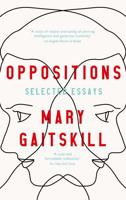Publisher's Synopsis
The Stranger (French: L'Étranger), also published in English as The Outsider, is a 1942 novella by French author Albert Camus. Its theme and outlook are often cited as examples of Camus' philosophy, absurdism, coupled with existentialism; though Camus personally rejected the latter label.
The title character is Meursault, an indifferent French settler in Algeria described as "a citizen of France domiciled in North Africa, a man of the Mediterranean, an homme du midi yet one who hardly partakes of the traditional Mediterranean culture."Weeks after his mother's funeral, he kills an Arab man in French Algiers, who was involved in a conflict with one of Meursault's neighbors. Meursault is tried and sentenced to death. The story is divided into two parts, presenting Meursault's first-person narrative view before and after the murder, respectively.
Meursault learns of the death of his mother, who has been living in an old age home in the country. He takes time off from work to attend her funeral, but he shows no signs of grief or mourning that the people around him expect from someone in his situation. When asked if he wishes to view her body, he declines, and he smokes and drinks regular (white) coffee - not the obligatory black coffee - at the vigil held by his mother's coffin the night before the burial. Most of his comments to the reader at this time are about his observations of the aged attendees at the vigil and funeral, which takes place on an unbearably hot day.
Back in Algiers, Meursault encounters Marie, a former secretary of his firm. The two become re-acquainted, swim together, watch a comedy film, and begin to have an intimate relationship. All of this happens on the day after his mother's funeral.
Over the next few days, Meursault helps Raymond Sintès, a neighbor and friend who is rumored to be a pimp, but says he works in a warehouse, to get revenge on a Moorish girlfriend he suspects has been accepting gifts and money from another man. Raymond asks Meursault to write a letter inviting the girl over to Raymond's apartment solely so that he can have sex with her and then spit in her face and throw her out. While he listens to Raymond, Meursault is characteristically unfazed by any feelings of empathy, so he does not express concern that Raymond's girlfriend would be emotionally hurt by this plan and agrees to write the letter. In general, Meursault considers other people either interesting or annoying, or feels nothing for them at all.
Raymond's girlfriend visits him on a Sunday morning, and the police get involved when he beats her for slapping him after he tries to kick her out. He asks Meursault to testify that the girlfriend had been unfaithful when he is called to the police station, to which Meursault agrees. Ultimately, Raymond is let off with a warning.









